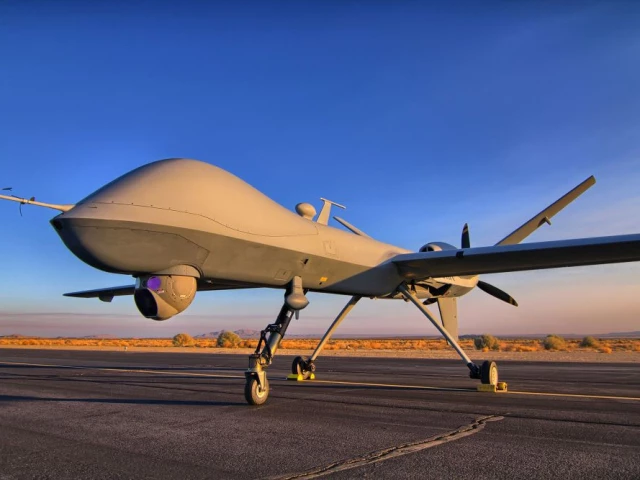Trump to reinterpret arms treaty to boost US drone sales abroad
New treaty interpretation may allow sale of 100+ MQ-9 drones to Saudi Arabia, with Pacific and EU allies interested

President Donald Trump is expected to unilaterally reinterpret a 38-year-old arms control treaty to sell sophisticated "Reaper"-style and other advanced military drones abroad, according to a US official and four people familiar with the plan.
The new interpretation would unlock the sale of more than 100 MQ-9 drones to Saudi Arabia, requested earlier this year as part of a $142 billion arms deal announced in May. US allies in the Pacific and Europe have also expressed interest.
By designating drones as aircraft like the F-16 rather than missile systems, the United States would sidestep the 35-nation Missile Technology Control Regime (MTCR) agreement signed in 1987. This would propel drone sales to countries such as the UAE and Eastern European states that have struggled to access US unmanned aerial vehicles.
The new policy will allow US drone makers including General Atomics, Kratos, and Anduril to have their products treated as "Foreign Military Sales" by the State Department, easing international sales, a U.S. official told Reuters on condition of anonymity.
This effort is the first step in a planned "major" review of the US Foreign Military Sales program, the official said. A State Department spokesperson declined to comment.
Currently, under MTCR rules, sales of many drones face a "strong presumption of denial" unless strict conditions are met. The MTCR was originally intended to curb missile proliferation but has since been applied to drones due to their range and payload capabilities.
Read More: Northwestern University president to step down amid Trump-era funding cuts
US manufacturers face stiff competition from Israeli, Chinese and Turkish drone makers, who often sell with fewer restrictions. Neither China nor Israel are MTCR signatories and have gained Middle East sales as a result.
Turkey, a member since 1997, has showcased its Bayraktar-TB2 drones in Ukraine, which fall under lighter standards. Russia, meanwhile, has used both domestic and Iranian drones in its war on Ukraine.
Washington has avoided supplying large drones to Kyiv, fearing advanced technologies could be captured. But global demand is soaring as drones reshape modern warfare.
The new guidelines are expected to position the US as a premier drone provider. An unveiling date has not been set, but the plan will align with a broader review of the US arms sales program later this year.
The timing would benefit US firms developing next-generation drones capable of flying alongside fighter jets. All sales would still undergo US government review, factoring in human rights, regional security, and system safeguards.
Also Read: Trump proposes renaming Defense Department as 'Department of War'
Saudi Arabia could be the first major buyer. While President Joe Biden initially imposed restrictions on arms sales to Riyadh over civilian casualties in Yemen, ties have since improved, especially after the October 2023 Hamas attack on Israel.
The White House is expected to highlight the drone sales shift as part of Trump’s wider push to boost jobs and reduce the US trade deficit. Critics, however, warn it could escalate violence in the Middle East and South Asia.
"India and Russia ‘lost’ to China"
President Donald Trump said it "looks like we've lost India and Russia to deepest, darkest, China" in a new post on his Truth Social platform.
"May they have a long and prosperous future together!" Trump wrote early on Friday morning, September 5, sharing an image of the leaders of the three countries together.






















COMMENTS
Comments are moderated and generally will be posted if they are on-topic and not abusive.
For more information, please see our Comments FAQ